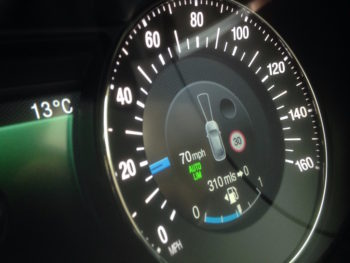EU Member States agree on new vehicle safety standards
The EU is to push ahead with introducing legislation which will require various safety features to be included on a range of vehicles with the aim of saving lives on Europe’s roads.

The plans would see 11 different safety technologies be required on new cars within the next three years
The transport policy proposals – known as the Third Mobility Package – were published as May and will see 11 different systems, including advanced safety features such as autonomous emergency braking (AEB) and intelligent speed assistance (ISA), alcohol interlock installation facilitation, drowsiness and attention detection and accident data recorders, be required on new cars within the next three years. Currently these features are only available as an option on some models. The campaign also emphasises the importance of safer car and lorry fronts.
It would mark the first significant changes to EU minimum safety standards since 2009 and could save 25,000 lives in the EU between 2022 and 2037 according to an official study.
The Council of the EU has agreed its position this week on the new rules which means that negotiations can begin with the European Parliament as soon as it has adopted its position.
The announcement was welcomed by the European Transport Safety Council (ETSC) which has previously concerns that the new rules will get “watered down”. It follows comments from the European Automobile Manufacturers’ Association (ACEA) that ‘active safety measures’ should “take priority” over passive safety measures as it claims that more crashes will be avoided in the future thanks to driver aids such as Automated Emergency Braking (AEB) and, further in the future, automated cars.
Commenting on the Council of the EU’s announcement of its endorsement to the changes, ETSC executive director Antonio Avenoso said: “EU member states have given strong backing to a game-changing package of new minimum vehicle safety standards. If this legislation is passed, together with the European Parliament, in the form it was proposed, it will prevent 25,000 people from dying over 16 years – a massive step forward for road safety.
“We strongly urge members of the European Parliament to guarantee this package is passed without being watered down. Car manufacturers are relentlessly campaigning to weaken the proposals by removing key life-saving technologies such as Intelligent Speed Assistance (ISA), and by deprioritising others, such as standards that would require lorries to have larger windows to improve visibility of pedestrians and cyclists. The cost of undermining the package in this way would be counted in lives lost or changed forever.”
The final proposals will now need to be agreed in negotiations between the EU institutions after formal votes in the European Parliament’s Internal Market (IMCO) and Transport (TRAN) committees, expected to take place early next year.
Next week will also see EU Transport Ministers agree their position on a related proposal on improving road infrastructure safety management in the EU, with the ETSC having warned today that the weakened version of the rules will do little to improve road safety. Instead, the organisation calling for MEPs in the European Parliament to “demand more wide-ranging and effective rules” when negotiations begin on the final legislation early next year.







